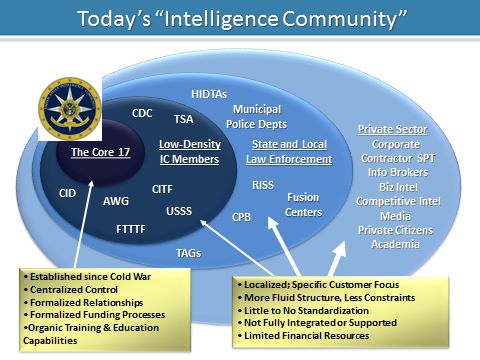By Erik Kleinsmith | 06/11/2024

Intelligence professionals, including intelligence analysts and experts in national intelligence, are commonly asked how to enter the field or secure a job in intelligence. These questions come up frequently throughout their careers.
I remember asking it myself when I was still in high school. We had an older family friend who was in the U.S. Secret Service, and I was intrigued to know more about his job.
As he explained the duties of his job, I knew I wanted to be involved in that world in some capacity. Unfortunately, I didn’t understand the difference between careers in intelligence, national security, or federal law enforcement. I also had little understanding of the steps needed to become an intelligence analyst or operative.
He clarified that intelligence careers often require a combination of education, skills, and sometimes experience in related fields. For instance, many intelligence agencies look for candidates with degrees in fields such as international relations, intelligence studies, or computer technology.
To pursue a career in intelligence, it's important to first understand the various pathways available. Intelligence careers can be broadly categorized into analysis, operations, and support roles.

Today's Intelligence Community. Image courtesy of author.
The Four Common Paths to an Intelligence Career
What makes pursuing job opportunities in the U.S. Intelligence Community a daunting choice is the lack of clear, well-defined paths, which can often be confusing. Unlike careers in law enforcement where you attend a training academy, there is no ROTC-like program to bring intelligence professionals into the workforce.
After spending almost 30 years in various intelligence positions, I’ve learned that most people working in intelligence did not start their careers in this field. While this trend may be changing, it's still wise to view intelligence as a career path one typically enters from another profession.
So, where do you start? Where does the Intelligence Community get its people? Simple: We steal them from four major sources.
The Military
One of the most likely ways to end up in the Intelligence Community is to work in intelligence in the military. It seems paradoxical because, although intelligence careers are often seen as hard to enter, military intelligence provides a clearer and more accessible path. While getting into military intelligence is very competitive, it is still more accessible than most other parts of the intelligence profession.
Each military branch has intelligence programs or schools designed to take raw recruits and give them a basic understanding of the job, equipment, and skills needed to work in intelligence. Once intel soldiers, sailors, airmen, and marines get to their first assignment, their training continues both within the unit and through additional training. Individuals with several years of military intelligence are highly skilled and knowledgeable about their part of the intelligence spectrum.
Military branches, such as the Army, and federal defense organizations, such as the Defense Intelligence Agency (DIA), have intelligence programs designed to train intelligence analysts. The Intelligence Community and private companies know about this well-trained source of people and seek to steal these officers from the military.
After all, why spend time and resources training your own intelligence experts when you can simply offer a higher salary to someone the military has already trained? This way of thinking is why the U.S. military routinely has much higher attrition rates for intelligence personnel than other types of service members.
Also, it’s not just the Intelligence Community that recruits military servicemembers. Medical, technical, legal, aviation, and other professions also steal from the military just as aggressively.
Law Enforcement
Many police officers who gain experience in investigative work find that transitioning to an intelligence career is not much of a stretch. Where investigators learn and use analytical skills to determine who committed a crime, intelligence analysis requires a more predictive approach to who is going to commit a crime.
There are numerous parallels between these two skill sets. In fact, police investigators often find themselves getting into the business of predictive analysis as a necessary part of their job.
Intelligence analysts often transition from law enforcement roles, leveraging their investigative experience with the necessary security clearance. Intelligence support for law enforcement, although not as well-established as it is in the military, is growing.
The two are starting to coexist with one another from national to state to local levels. As a result, many intelligence units supporting police departments, state fusion centers, and investigative departments involve people who either worked in the military or law enforcement.
Information Technology
The Intelligence Community loves technology. We are currently inundated with big data, collection platforms, and data-mining tools intended to help us sift through the oceans of information we now collect.
For a growing number of intelligence analysts, starting out as a software or network engineer has the potential, albeit indirectly, to be a path into the Intelligence Community. This fact is especially true for IT folks who have experience and expertise (these are not the same thing) in specific tools or technologies.
For IT professionals, working with agencies like the National Geospatial-Intelligence Agency (NGA) requires critical thinking skills and technical expertise. Who better to place in an intelligence center than someone who knows how to seamlessly integrate data and tools?
Demonstrating the ability to solve the challenging problems of cutting-edge data mining tools can potentially open many doors. Additionally, working in the same environment as intelligence professionals and possessing the appropriate security clearances will create even more opportunities.
Colleges and Universities
Recruiting college students directly into the Intelligence Community is not as common as it once was, but this change is occurring more and more as schools recognize the need for academic programs for aspiring intel professionals. After all, the Office of Strategic Services (OSS) and the Central Intelligence Agency (CIA) during and post-World War II owe their existence to people who jumped over from many of the Ivy League schools.
University programs can prepare students to seek roles in intelligence agencies like the National Security Agency (NSA), where they can focus on intelligence gathering and analysis. There are many areas of study that are attractive to the Intelligence Community. It all depends on who is looking for expertise in a given area, whether it’s mathematics, international relations, psychology, accounting, or other professions.
Understanding these and other recruitment avenues can make the path to seeking job opportunities in intelligence clearer. While intelligence remains an exclusive profession, there are a growing number of ways to enter the field. Determine which of these four viable and popular career paths may work for you, which will help you take your first steps towards your end goal of pursuing job opportunities in intelligence.
Intelligence Degrees at American Military University
For students interested in U.S. intelligence, foreign intelligence, national security, government service, or corporate intelligence, American Military University (AMU) offers an online bachelor’s degree in intelligence studies and an online master’s degree in intelligence studies. These programs feature experienced faculty with backgrounds in the U.S. intelligence community and offers a convenient online format, which is beneficial for working professionals who must fulfill other obligations or commitments.
These programs feature courses that cover various topics, such as:
- Intelligence analysis
- National and international intelligence operations
- Law and ethics
- Threat analysis
- Foreign intelligence organizations
- Different types of intelligence such as HUMINT, GEOINT, TECHINT, and OSINT
- Counterintelligence
- Weapons of mass destruction
- Strategic intelligence
- The intelligence cycle
For more information about our degree programs and certificate programs in intelligence studies and intelligence analysis, visit our program page.
Erik Kleinsmith is currently a solutions architect for Leidos and the author of the book, Intelligence Operations: Understanding Data, Tools, People, and Processes. He has also been a Director of Intelligence Strategy at SOS International LLC, an Associate Vice President of Strategic Planning for American Military University, and a Program Manager of Intelligence and Security Training for Lockheed Martin. Erik holds a bachelor’s degree in political science and government from Purdue University and a master’s degree in intelligence studies from American Military University.
Erik is a former Army Intelligence Officer and the former portfolio manager for Intelligence and Security Training at Lockheed Martin. Erik is one of the subjects of a book entitled The Watchers by Shane Harris, which covered his work on a program called Able Danger, tracking Al Qaeda prior to 9/11.

